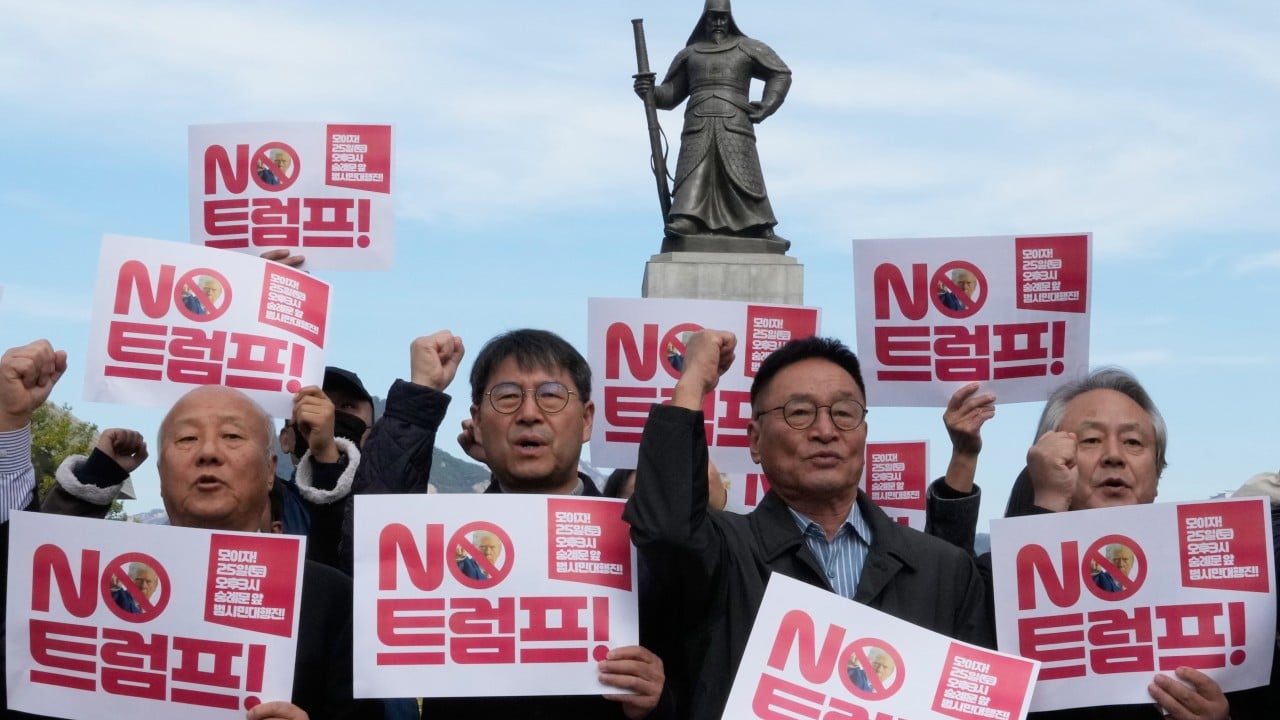Despite weeks of frantic diplomacy, the chances of South Korea and the United States sealing a trade deal before next week’s Apec summit appear to be slim, with strong domestic backing enabling Seoul to resist a compromise seen as perilous to the national economy.
Advertisement
Under a framework agreement reached in July, US President Donald Trump’s administration offered to cut tariffs on South Korean imports from 25 per cent to 15 per cent – but only if Seoul committed US$350 billion in investments into sectors earmarked by Washington.
South Korea fears that injecting such a massive amount of capital at once could trigger financial instability, given the size of its economy and foreign exchange reserves.
Follow-up negotiations have stalled over key issues, including how the investment package should be structured and profit-sharing between the two countries.
Seoul’s presidential chief of staff for policy, Kim Yong-beom, told journalists on Friday that some progress had been made but the two countries still “remain at odds on key issues”.
Advertisement
“Differences have narrowed in many areas. But both sides still remain at odds over one or two of the most important matters,” he said, adding this was a “typical feature of negotiations”.

